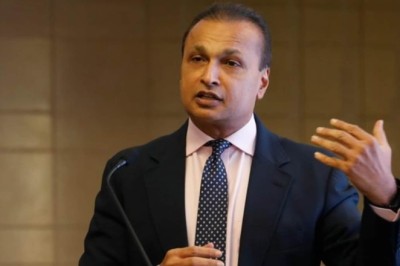Infrastructure Crisis Exposes Grim Reality of Anganwadi Centres In Madhya Pradesh
Madhya Pradesh, a state often in the spotlight for its developmental promises, continues to struggle with the basic infrastructure of its Anganwadi centres, the backbone of its child development and nutrition programmes.
Out of the 97,329 Anganwadi centres in the state, over 34,143 lack buildings, while more than 4,044 are operating in dangerously dilapidated conditions.
These glaring issues raise significant concerns about the welfare and development of children and women in the centres.
In Bhopal's Shivnagar, an Anganwadi centre operates in a rented room where 87 children are expected to sit together. The room also houses utensils for meals, a weighing machine for monitoring children's growth, and basic educational material.
"We call the children, give them food, and teach them. We also visit homes of malnourished children. Since I joined, this Anganwadi has been on rent paid by the government," Anganwadi worker Rama Kushwaha said.
In Roshanpura, another Anganwadi struggles to function in a tin shed. Registered to accommodate 65 children, the centre operates in a space barely fit for a few.
The government said it is seeing progress, but presents a grim picture.
In the last five years, 194 Anganwadi centres and 4,320 buildings were approved. However, only 1,399 of these buildings have been completed, translating to an average of just 300 buildings per year.
At this pace, it would take over a century for all Anganwadis in Madhya Pradesh to have their own buildings.
There are 97,329 Anganwadis in the state; of this, 34,143 or 40 per cent are without buildings, 4,044 are dilapidated, and only 1,399 buildings are complete in the last five years.
Women and Child Development Minister Nirmala Bhuria said he does not deny there are certain challenges, but declined to give a timeline on fixing the issue.
"It is not possible to provide a specific timeframe. We are working on it, and new Anganwadis have been approved. Urban areas often face land availability issues, which is why many centres are rented. However, more Anganwadis will be built in the future," the minister said.
Anganwadi workers face the uphill task of managing overcrowded rooms, providing nutritious meals, monitoring children's health, and supporting pregnant women - all in severely constrained spaces.
The disconnect between government policies and their implementation is evident, with no immediate solution in sight.
The Anganwadi programme, designed to uplift children and women, stands compromised without urgent action.



















Comments
0 comment